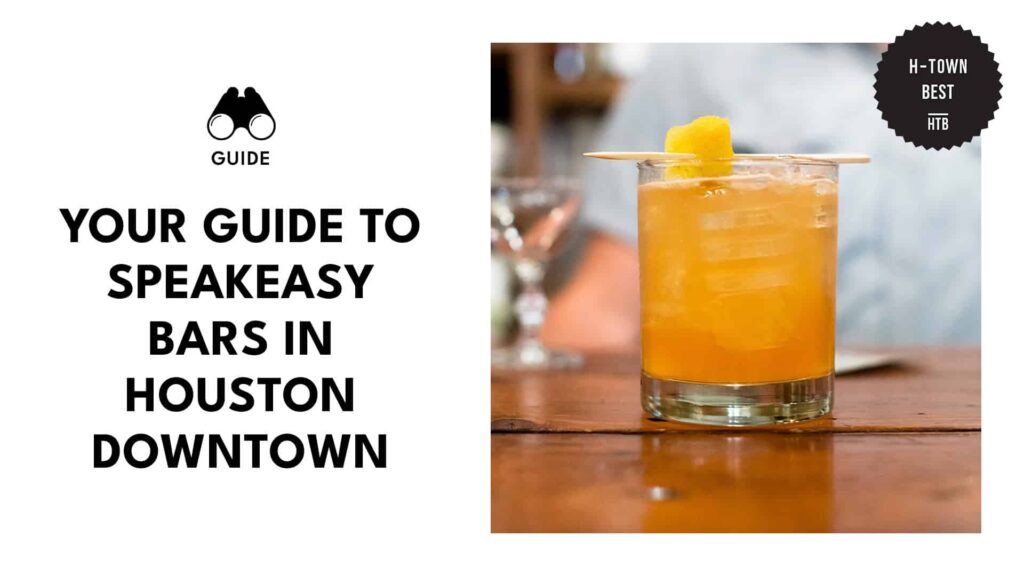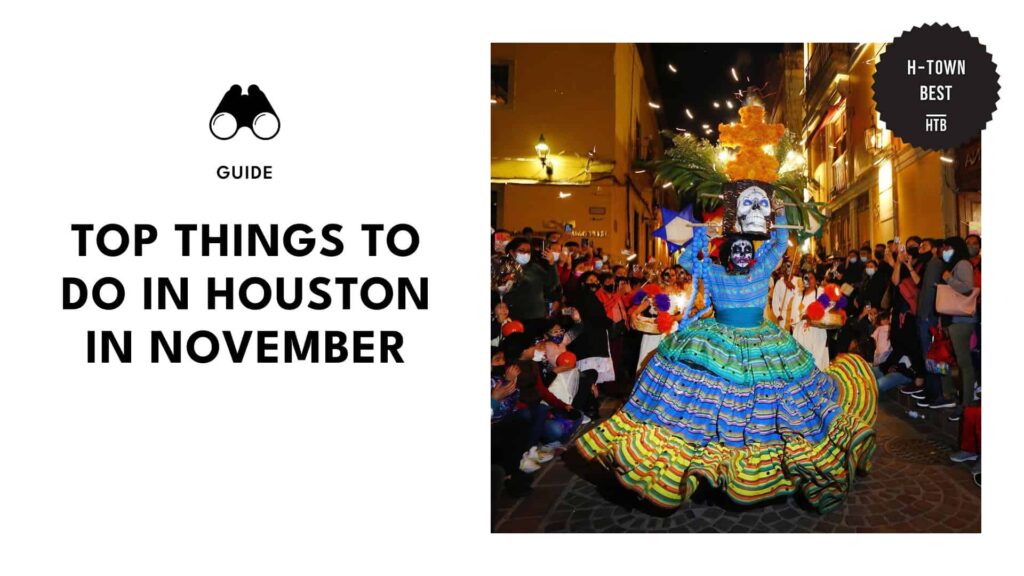Why does Houston hate Dallas?

- Why does Houston hate Dallas?
- Historical Differences
- How It Started
- Where It All Changed
- Catalyst to the Rivalry
- Differing Political Climates
- Competition in Sports
- Football
- Baseball
- Basketball
- Soccer
- Cultural Differences
- Houston’s Diversity
- Dallas’s Singularity
- Business Climate
- How They Differ
- Population Growth
As two of the largest cities in Texas, Houston and Dallas have a long-standing rivalry that can be traced back for decades.
While the competition between these two cities may seem like harmless fun, there are some who argue that the animosity between Houston and Dallas runs much deeper than a simple sports rivalry or regional pride.
While the rivalry has simmered down over the years, the dislike between the two cities still remains. Let’s explore some possible reasons why the rivalry between the two Texas superpowers is still active to this day.
Why does Houston hate Dallas?
The hostility between Houston and Dallas is often attributed to a number of factors, including rivalry in sports, culture, politics, and business, and even historical differences.
The start of the rivalry between the two cities can be traced back to the days when they were competing to become the dominant economic and cultural center of the state.
In this article, we will explore some of the reasons why Houston hates Dallas, and examine the historical, cultural, and economic factors that have contributed to this long-standing rivalry.
Historical Differences

The rivalry between Houston and Dallas goes beyond skin deep, in this section we’ll delve into exactly what took place that made the 2 Texan giants take up 2 different corners in the ring.
How It Started

According to an article written by Craig Hlavaty for Houston Chronicle, the rivalry between Houston and Dallas is a long-standing tension that can be traced back to the early 20th century.
At the time, Dallas was seen as the more prosperous and influential city, with a booming business and cultural scene. Houston, on the other hand, was known as a swampy backwater with little to offer in the way of industry or culture.
This historical dynamic created a competitive relationship between the two cities that has persisted throughout the decades.
Where It All Changed

Before the 1900s, Houston was primarily a shipping and trading center, while Dallas was a regional transportation hub and financial center.
Dallas was seen as the economic center of Texas, thanks in large part to the cotton industry and the railroads that passed through the city. Houston was viewed as a less developed city, with few natural resources and limited economic opportunities.
However, Houston’s fortunes began to change in the early 1900s, with the discovery of oil in the area. The Spindletop oil strike near Beaumont, Texas in 1901 ignited the state’s oil industry and brought new wealth and development to the region.

Houston was perfectly positioned to take advantage of this opportunity, and many of the city’s early oil barons invested heavily in the industry, transforming Houston into a major center for energy production.
As Houston grew and developed into a major city, it began to challenge Dallas’ position as the economic center of Texas.
The discovery of offshore oil reserves in the Gulf of Mexico in the 1950s and 1960s solidified Houston’s position as a major player in the global energy industry.
At the same time, Dallas was experiencing growth in the technology and finance sectors, but was struggling to keep pace with Houston’s economic growth and influence.
Catalyst to the Rivalry

One notable incident that highlighted the tension between Houston and Dallas occurred in the 1980s, when Houston was hit hard by the collapse of the oil industry.
Some in Dallas saw this as an opportunity to assert their dominance and lure businesses away from Houston. Dallas launched a marketing campaign called “Dallas Has It All,” which aimed to attract companies to consider relocating from Houston.
The campaign was seen by many in Houston as an attempt to capitalize on their city’s economic struggles and undermine its status as a major business center.
Differing Political Climates

Houston and Dallas also have different political views, which can contribute to their dislike of each other.
Dallas is often seen as being more liberal and progressive, while Houstin is seen as being in the middle or a bit more conservative.
Dallas County, TX is considered a stronghold of liberal values as demonstrated by the fact that in the last presidential election, 64.9% of voters supported the Democratic Party, while 33.3% supported the Republican Party.
Harris County, TX leans towards the liberal side. However, Houston is more supportive of the Republican party with 4 of its previous elections since 2000 seating a Republican candidate on the seat of power.
In recent years, Houston’s political climate is steadily shifting towards the liberal side, which may ease tensions between the 2 cities.
Competition in Sports

The rivalry between Houston and Dallas extends to their sports teams, and it’s one of the most heated in Texas.
The cities have teams that compete in multiple professional sports leagues, including the National Football League (NFL), Major League Baseball (MLB), the National Basketball Association (NBA), and Major League Soccer (MLS).
Football

In the NFL, the Houston Texans and the Dallas Cowboys are in the same state and are in the same conference, which means they play each other at least once every few years.
According to Taylor Stern for the Dallas Cowboys, the rivalry between these two teams began in 2002, when the Texans were established as an expansion team in the league.
The games between these two teams often sell out quickly, with fans on both sides displaying their passion and loyalty.
Baseball

The MLB rivalry between the Houston Astros and the Texas Rangers is also intense. These two teams play in the same division and regularly compete against each other throughout the season.
According to T.R. Sullivan, the rivalry between these two teams goes back to the 1960s, when the Astros were known as the Houston Colt .45s and the Rangers were known as the Washington Senators.
In recent years, the rivalry has only intensified, with both teams being competitive and making the playoffs in multiple seasons.
Basketball

According to an article by Sean Fitz-Gerald on The Athletic, the rivalry between the Houston Rockets and the Dallas Mavericks in the NBA dates back to the 1980s.
This was when the Rockets were in their prime with players like Hakeem Olajuwon, and the Mavericks were struggling to find their footing in the league.
Since then, both teams have had their share of successes and failures, but the games between the Rockets and the Mavericks remain highly competitive and often result in close, hard-fought battles on the court.
Soccer

Lastly, the Houston Dynamo and FC Dallas, two MLS teams, have a rivalry that began in 2006 when the Houston Dynamo was formed, as stated by Jon Arnold on Goal
Both teams have enjoyed success in the league, with the Dynamo winning two MLS Cups and FC Dallas reaching the playoffs multiple times. These games are often dubbed the “Texas Derby” and are highly anticipated by soccer fans in both cities.
Cultural Differences

Houston’s culture offers more variety to its citizens and visitors while Dallas takes great pride in its cowboy culture. This discrepancy between cultural priorities affect the relationship between the 2 cities as both think their way is better than the other’s.
Houston’s Diversity

Houston, Texas is widely recognized as one of the most diverse cities in the United States, with a vibrant cultural scene that reflects the city’s rich mix of ethnicities, nationalities, and traditions.
Houston is home to large communities of immigrants from all over the world, including Mexico, India, Vietnam, and Nigeria, among others. This diversity is evident in the city’s food, music, art, and festivals, which showcase a wide range of cultures and traditions.
Houston’s culinary scene, for example, is a melting pot of international cuisines, with everything from Tex-Mex and barbecue to Vietnamese pho and Indian curries.

Houston is home to a wide variety of international restaurants, including Vietnamese, Nigerian, and Pakistani cuisine.
Houston is also known for its music scene, which includes everything from hip hop to country music to opera.
Additionally, Houston is home to several world-class museums and cultural institutions, including the Houston Museum of Natural Science, the Museum of Fine Arts Houston, and the Menil Collection.

The city’s museums and galleries also celebrate the diversity of its residents, with collections that feature art and artifacts from around the world.
Houston’s diversity is also reflected in its neighborhoods, each of which has its own unique character and cultural identity.
The city’s historic Third Ward, for example, is known for its African-American heritage and vibrant arts scene, while the Mahatma Gandhi District is a hub of South Asian culture and cuisine.
Dallas’s Singularity

On the other hand, Dallas takes pride in its strong cowboy culture and Tex-Mex cuisine. The city is home to the State Fair of Texas, one of the largest and most popular fairs in the country, which features a rodeo, carnival rides, and deep-fried foods.
Dallas, Texas takes pride in its rich cowboy culture and history, and the city has worked hard to preserve and promote this aspect of its identity. Known as the “Big D,” Dallas is famous for its Western heritage, including the iconic cowboy hat, boots, and rodeo.
The city is home to the National Cowgirl Museum and Hall of Fame, as well as numerous Western-themed attractions and events, including the State Fair of Texas and the Fort Worth Stock Show and Rodeo.

Dallas also hosts the annual Texas Heritage Songwriters’ Association Hall of Fame Awards, which recognizes the contributions of songwriters to the state’s rich musical traditions.
In addition to preserving its cowboy culture, Dallas has also leveraged it as a selling point to attract visitors and businesses. The city’s official logo features a cowboy hat and star, and the tourism industry markets Dallas as the “Cowboy Capital of the World.”
The cowboy culture is also reflected in the city’s cuisine, with numerous steakhouses and barbecue joints serving up traditional Western fare.
Business Climate

Image Source: Fauxels on Pexels
Houston and Dallas are both important centers for business and commerce, but they have different industries and areas of expertise. There’s a widely held belief that Dallas looks down on its Texan counterpart because of this.
Dallas’ commerce is mostly centered on more polished industries like business and corporate ventures, while Houston is heavily reliant on energy production and oil which is seen to be more crude and blue-collar.
Houston and Dallas are two of the largest cities in Texas and the United States, and they share a friendly yet competitive relationship in various aspects, including businesses.
While they have some similarities, there are several differences between the two cities that contribute to the rivalry between them.
One of the main differences between Houston and Dallas is their industry composition.
How They Differ

Both cities have very different industries. The difference has also resulted in different corporate headquarters locations.
According to the U.S. Bureau of Labor Statistics, the top industries in Houston are energy, oil, trade, and transportation.
Houston is home to several major energy companies such as ExxonMobil, ConocoPhillips, and Phillips 66, which contribute significantly to the city’s economy.
In 2020, the energy industry in Houston suffered significant job losses due to the COVID-19 pandemic and the decline in oil prices, while the financial and technology industries in Dallas remained relatively stable.
Dallas is more diversified, with a significant concentration of financial and technology companies. Some of the top industries in Dallas are professional and business services, followed by corporate, educational, and health services.
Dallas is home to major corporations such as AT&T, Southwest Airlines, and Texas Instruments, which are leading players in the telecommunications, airline, and technology industries.
The big players in both cities are drastically different and cause a point of comparison, as well as arguments on which city should represent Texas’ business hub.
Population Growth

Another factor that contributes to the rivalry between Houston and Dallas is their population growth. With more people, the need for resources also increases. This demand in both cities causes somewhat of a tug-of-war for opportunities for growth.
According to the U.S. Census Bureau, Houston had a population of 2.3 million in 2020, while Dallas had a population of 1.3 million. This population growth in the two cities has led to increased competition for businesses and talent.
In recent years, Dallas has attracted more corporate headquarters and startups, while Houston has been experiencing a brain drain, with more people leaving the city than moving in.
This is yet another reason for Houston to think that Dallas is actively trying to one-up them or steal people from their workforce.

The Houston Business Journal reports that Houston lost approximately 153,000 residents to other cities in 2019, while Dallas gained approximately 130,000 residents.
Houston and Dallas share some similarities, such as their size and importance to the Texas economy.
However, their differences in industry composition, corporate headquarters, and population growth have contributed to their friendly yet competitive relationship in the business world.
As both cities continue to grow and evolve, it will be interesting to see how their rivalry develops.





